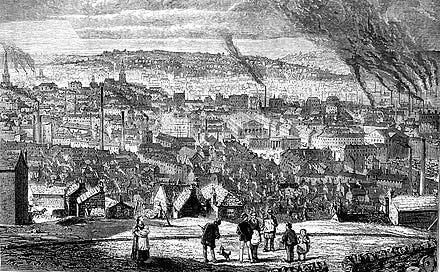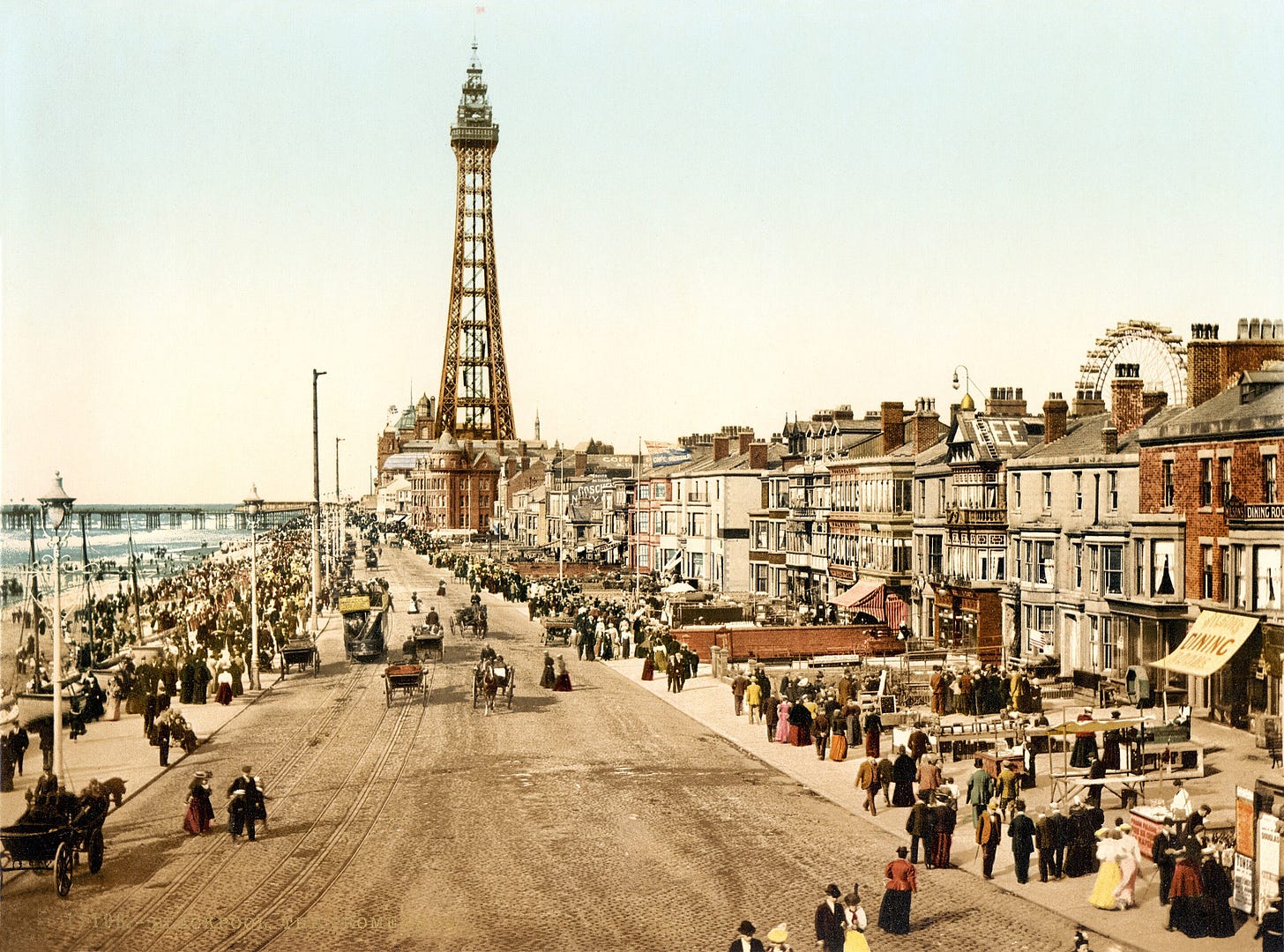The debtor detective
One Sheffield man tried his hand at various careers before becoming a private eye and ending up in the debtor's court
I've recently been researching the life of Sheffield private detective Ernest Elston, who claimed a private detective career spanning three decades, but who might (and this will surprise no regular reader of this substack) have been exaggerating his success.
Ernest was a man born and bred in Sheffield. The son of a herbalist named Benjamin Elston, he had not followed his father's career but instead started, in his mid teens, as a silver finisher. At the age of 25, in 1901, following his father's death, he was living with his mother Johanna and working in the same job (now described as an electroplate silver finisher).
This puts paid to Ernest's later press adverts claiming that he had started his private inquiry business in 1900. There is no trace of him as such before World War 1, although he certainly moved jobs prior to this. He had married Sarah Flanagan later in 1901, and the couple had their only child, son Ernest, the following year.
Sheffield in the 19th century
The 1911 census records Ernest as working as a traveller, selling drapery goods. He was not that flush financially, and he and his wife, like many families, took in a boarder to help pay the bills. By 1912, Ernest was listed in local street directories as a 'collector', and he certainly seems to have been working as a private detective at least part-time by 1917, although between 1918 and 1919, he also appears to have been working as an inspector for the Sheffield Food Control Committee.
His first press advert as a fully-fledged private detective was published in August 1920. The Elstons had moved from their previous home in Winter Road to one at 31 Harcourt Road, which would be their home for at least six years - as well as being Ernest's office. He specialised, as many did, in divorce work; one such case came in 1921, when he was employed to find evidence that Sarah Hunter Arran, the wife of a chauffeur, had been having an affair with one of her son's work colleagues - a 23-year-old man. Sarah alleged that as Ernest served her the divorce papers, he told her she could burn them because "her husband was no good"; Ernest denied doing so.
His first recorded divorce case, however, had come in January 1917, when he was instructed to make inquiries about the relationships of Ethel Alice Holdsworth. She had only married her husband, Henry, in 1909, but he had soon become suspicious of her relationships with other men. The final straw, for him, came in 1914, when he caught his wife in a 'compromising situation' with another man. He duly left her, and she found work in a mill. However, he believed that she was now having an affair with a man named Walter Gill, who she had previously wanted to become a lodger in the marital home - only Henry Holdsworth had refused. He asked Ernest Elston to investigate; Elston turned up at Ethel's new lodgings, where he found her with a baby in her arms. She admitted that Walter Gill was the father, and wrote a confession for Ernest to give her husband. Ernest also interviewed Walter Gill and showed him Ethel's confession; he admitted that what she had written was true.
Up until 1922, Ernest said he was successful in his business, and that he was making £4 to £5 a week. However, he then became ill, and was unwell for six months, during which time he lost a lot of business. He was unable to recover from this slump, and calculated that his yearly earnings between 1925 and 1926 amounted to less than £50. This may explain why, in 1926, the family moved from their home in Harcourt Road to presumably cheaper lodgings in Heavygate Road. It was not enough, though, and in November, Ernest was called to the Official Receiver's office in relation to his debts of between £163 and £173 (accounts differed in the press).
His situation as a debtor was recorded in the same newspapers that had carried his business adverts; although his situation was recorded under headlines such as 'inquiry agent's affairs', the reports detailed his previous job as drapery canvasser and referred to him as 'a silver finisher by trade' despite his years as a private detective. They also put paid to his boast that he had started in this business in 1900 - one report stated that he had only started as a private detective in 1910, and as the censuses suggest, if he was one this early, it was in conjunction with other jobs rather than being a full-time career.
Blackpool, where Ernest relocated in the late 1920s (Library of Congress)
However, his money issues did not mean that Elston stopped being a private detective. He did, however, leave his native Sheffield. He relocated to Blackpool, where in 1930, he was advertising his services as a private detective and inquiry agent (established 1900), based at 16 Knowle Avenue. How successful he was in Blackpool is not known, but he died there in 1937.
Over the next few weeks, I will be looking at two other cases from Ernest Elston's private detective career





